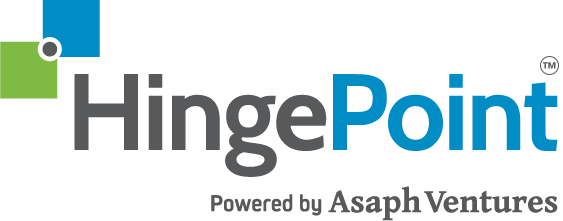It might be time for a technology evaluation.
Technology is allegedly the Holy Grail of efficiency. It’s the thing that the modern human is creating at rapid speeds to make our personal lives and the way we work better.
It’s designed to free up time, measure how successful we are and get work finished more quickly.
However, that’s not always the case.
For many of us, the promise of technology is not happening. Many of us have become slaves to it. Many of us learn to work so we can support our technology instead of letting technology support how we work.
Here are five things happening in America that should help you consider re-evaluating how technology should help you in your life.
1. We’re overworked
It’s no secret that professionals in America are overworked. Technology is chained to our hands and sometimes blocks us from working on or doing what really matters in work and life.
“Forty percent of U.S. employees feel overworked or burned out, according to the Staples Business Advantage Workplace Index 2016. The report also found that the majority of employees (59%) believed that decreasing their workload could lead to less workplace stress.”
2. Technology is Not Making Us More Productive

Graph from NPR
NPR recently reported that productivity in the United States “has been growing more slowly in recent years — and it has dropped for the past three quarters.”
Princeton professor Alan Blinder told NPR that one culprit is that “businesses aren’t investing enough in better tools” for their employees.
After the information technology revolution of the 1990s, most companies have stopped looking for more efficient ways to do their work.
Many are stuck with using decade old tools.
Email and the Internet are still the dominant tools Americans use in the workplace, according to a Pew Research Center study.
“Some see these tools as increasing productivity and offering more flexibility for America’s workforce; others say they decrease productivity and pressure workers to be constantly connected to their workplace.”
When the desktop computer came out, promises were made that life would be easier. We started thinking that technology was another way to be productive. The terms almost seemed synonymous: technology tool and productivity tool.
But now we are actually getting less finished. Especially when we rely on tools that are two decades old.
3. We’re Burned Out by Busy Work
If not implemented correctly, the productivity tools we use can and do actually stifle progress. Sometimes our employees are burned out.
Doctors recently stated that they “loathe” the busy work from computers. It’s even attributed to doctor burnout.
Digital busy work “eats up time they would otherwise spend with their patients, which is where a large number of physicians derive professional pleasure.”
“The introduction of computers into the examination room has the potential to shift physicians’ focus away from the patient and the human interaction,” the study authors write, “which is a source of meaning for physicians.”
If doctors are having trouble focusing on what truly matters in work—their patients—imagine how the rest of us are doing?
4. The Always-On Society
Studies show that the average person opens his or her smartphone 150 times a day. Even if we just looked at our phone for one minute at a time—which you and I know we do much more—we’d have wasted more than 2.5 hours a day by simply looking at our phone.
Work has also seeped into our coveted personal life. We are not a more productive society. We are an always-on society. Our laptops and phones never turn off. If a business crisis arises—no matter how big or small—we are expected to answer no matter what.
5. The Busy Work Era
In addition to the always-on society, many of us cannot exclusively work on what matters.
Counter-intuitively, we will get a new software tool off the shelf and expect it to revolutionize our ability to get work finished.
Many times the way we work is broken. It’s not efficient. We focus more time on busy work and collecting data than actually strategizing, analyzing and making the most informed business decisions.
Conclusion
If you don’t have the right processes at work that gets rid of busywork AND you have this always-on mentality… how good do you think your work is really going to be? More importantly, how do you think your life is going to be?
Any formula that makes you work to support a slow process spells disaster. And if we are not careful, we will continue to work inefficiently. Our competitors might overtake us or we might slowly fade away.
HingePoint
2300 McDermott Road STE 200-235, Plano, TX 75025
(214) 301-0000
www.hingepoint.com
HingePoint covers the AEC Industry and is the author of The AEC Industry 4.0 Report and the Autodesk Industry Report 2017. HingePoint helps construction and real estate development companies take control of their company’s information. We combine systems, software, and data so all company information can be seen and accessed from one screen, like a smartphone or computer.
HingePoint provides AutoDesk, SharePoint and Salesforce consulting for the Commercial Real Estate and Construction companies. HingePoint also helps the AEC industry with development & integration of AutoDesk products with enterprise systems. As members of the AutoDesk Development Network, we are a trusted partner with over 25 years experience of systems development and integration work in the AEC industry. Our clients range from top hotel brands and restaurant chains to AEC firms and real estate developers and Facilities Management. We provide BIM with ROI. Results Guaranteed…Literally Guaranteed.





